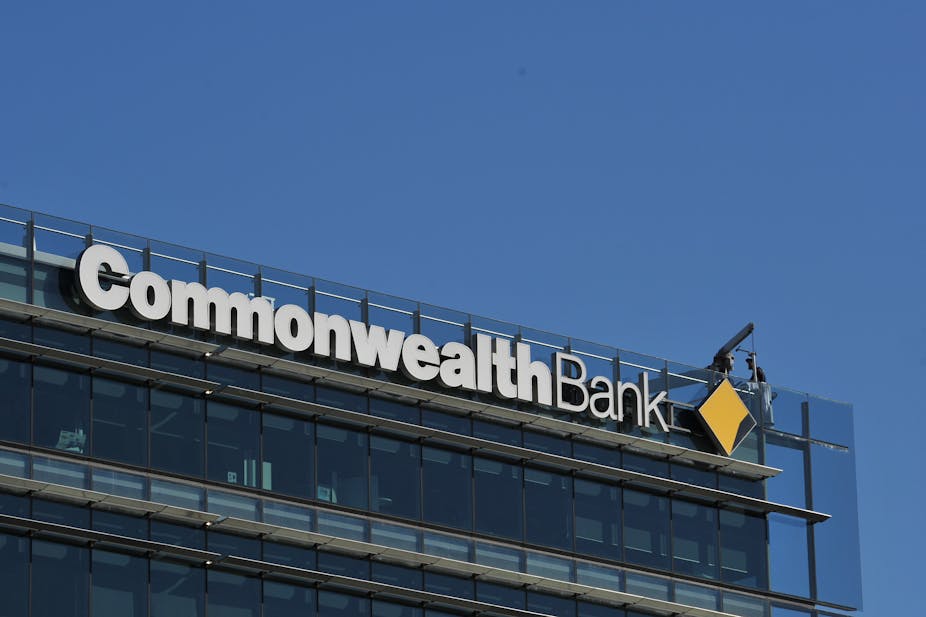The Senate inquiry in the actions of the Commonwealth Bank and the Australian Securities and Investment Commission has drawn a line in the sand, holding the banks and financial advisers to account for their actions in advising clients.
The Senate Committee’s final report which describes a “reckless sales-based culture” at the Commonwealth Financial Planning Limited (CFPL), roundly condemns the apparent inability of ASIC to intervene.
But the government has effectively rejected its most controversial recommendation of a Royal Commission, with Finance Minister Mathias Cormann this morning noting the dissenting report by Liberal senator David Bushby. When asked if he supported a Royal Commission, Prime Minister Tony Abbott said:
Obviously some terrible things happened and it’s good that the Parliamentary Committee enquiring into this has been able to expose some of the problems. We will carefully consider the recommendations of the Committee. We do obviously have an inquiry into financial governance going on now. We want to get to the bottom of these things and we want to ensure that investors are as safe as they can be in a market economy.
All eyes will now turn onto former CBA chief executive David Murray, who is preparing his final report into the financial system, due on July 15.
Most immediately, Murray needs to come up with more than platitudes about the future integrity of Australia’s financial services, to address the blight revealed on Australia’s banks and financial services and assure Australians immediate action will be taken to resolve it.
In the United States, despite the passage of the voluminous Dodd-Frank Act, the consolidation of the big investment banks, and the apparent lack of any behavioural changes among the toxically incentivised finance executives, a sense has developed - in the words of US Senator Elizabeth Warren - that they are “too big to fail, too big to manage, too big to regulate, and too big to jail”.
The cross-party report in its robust attack on bad practices in the financial services industry, and its determination to pursue the perpetrators, insists this is not going to happen in Australia.
The “unethical and dishonest” treatment of “vulnerable trusting people” involved a “a callous disregard for their clients’ interests” by CFPL financial advisers, while the Commonwealth Bank “tolerated for so long conduct that included apparent criminal activity”, in the resounding words of the inquiry Chair, Senator Mark Bishop.
ASIC is excoriated for “complacency” and placing too much trust in an institution that “sought to patch over its problems”. Now “rogue advisers” need to be identified and any breaches of the law pursued.
A Royal Commission would mean there will be no early burying of this scandal and its implications for the whole banking sector : “Firms need to know that they cannot turn a blind eye to rogue employees who do whatever it takes to make profits at the expense of vulnerable investors.”
The demand for ASIC to become “a more proactive regulator” means that if the banks do not clean up their act, they will face further intervention.
The timidity of ASIC
The inquiry’s portrayal of ASIC as “a timid, hesitant regulator, too ready and willing to accept uncritically the assurances of a large institution that there were no grounds for ASIC’s concerns or intervention”, will haunt ASIC in years to come, and hopefully spur it into action.
The catalogue of condemnation of ASIC and the CBA’s behaviour will not easily be erased from public memory. While defrauding innocent retirees of their assets is truly appalling, it is topped by the cynical indifference and meanness of the Commonwealth Bank’s response once the problem was unearthed.
The Inquiry reports CBA intimidated clients, obfuscated, was reluctant to provide files and provided no representation of clients interests when files were being checked and reconstructed. There were also numerous instances of missing documents, fabricated documents, forged signatures, and manifestly inadequate compensation.
The picture is one of an enormous and cruel “power asymmetry between unsophisticated, and in many cases older and vulnerable clients, and CFPL.”
This is far from the reassuring picture of a well-managed, well-regulated, and healthy banking and finance system in Australia that we have been encouraged to believe in as the best of all possible systems in recent decades.

